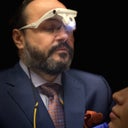Posted underBotox q&a
wendy_caseyJan 11, 2018
Answers (12)
From board-certified doctors and trusted medical professionals
Dr. Jason Emer, MD

JM
Dr. Jason Emer, MD
Dermatologic Surgeon, Board Certified in Dermatology
Answer
Dr. Kenneth D. Steinsapir, MD

KM
Dr. Kenneth D. Steinsapir, MD
Oculoplastic Surgeon, Board Certified in Ophthalmology
Answer
Dr. David C. Yao, MD, FACS

DF
Dr. David C. Yao, MD, FACS
Board Certified Plastic Surgeon
Answer
Dr. Michael I. Echavez, MD

MM
Dr. Michael I. Echavez, MD
Board Certified Facial Plastic Surgeon
Answer
Dr. Monika Soni, MD
MM
Dr. Monika Soni, MD
Board Certified Anesthesiologist
Answer
Dr. Robert Applebaum, MD
RM
Dr. Robert Applebaum, MD
Board Certified Plastic Surgeon
Answer
More Botox Questions
See all Botox Q&A
WE SEND PRETTY
EMAILS
What’s trending? Who’s turning heads? Which TikTok myths need busting? We’ve got you. No fluff, no gatekeeping—just real talk. Get our free, unfiltered newsletter.




